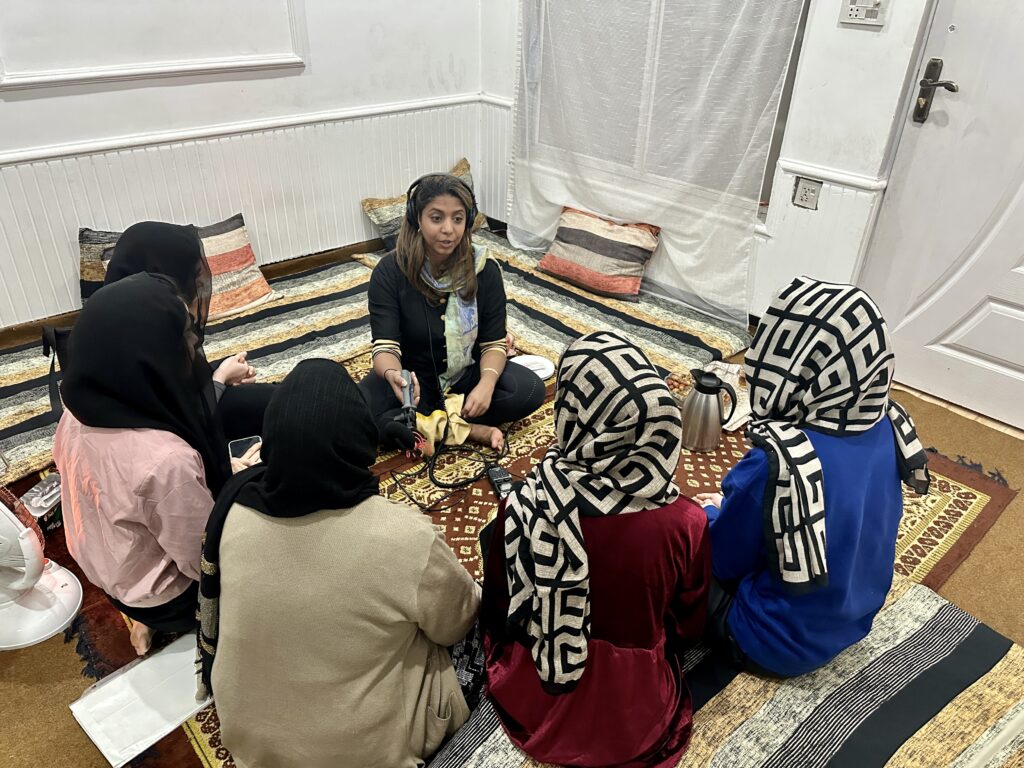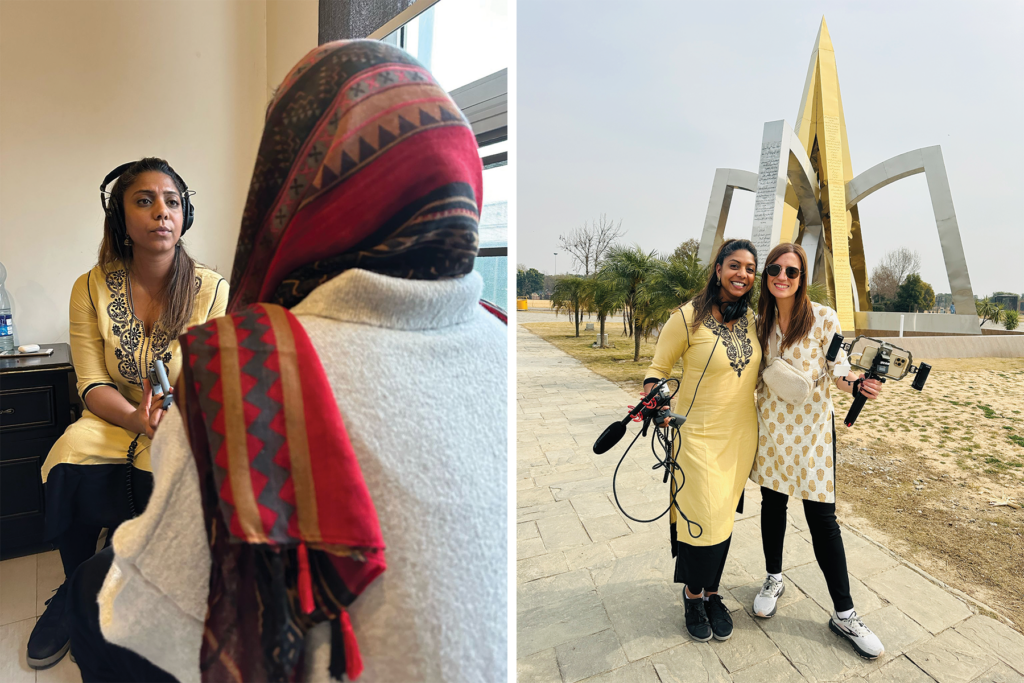
The world seems to have moved on from the plight of women and girls in Afghanistan. The country remains the only place in the world where females are banned from the classroom. In a new 3-part series called Dear Taliban, Investigative Reporter Molly Thomas explores the lives of three young Afghan girls, years after the Taliban takeover.
For her series Dear Taliban, Molly interviews a variety of people who are deeply invested in Afghanistan, including a Canadian Senator, war veteran, and Afghan women leaders, exiled from their home country after the Taliban takeover. Here’s some of their valuable insight.
Molly first met Senator Marilou McPhedran at the Michener-Deacon Awards Ceremony in 2023. Senator McPhedran is a former human rights lawyer who has tirelessly advocated and supported Afghan females during two education bans in that country, over the past few decades.
When asked if her colleagues on Parliament Hill understand the severity of the risk Afghan women are facing, Senator McPhedran responded:
“For parliamentarians now, there are terrible things happening in so many countries, but there is nowhere on the face of this earth that is built on, and governed on gender apartheid.”
Senator Marilou McPhedran
Molly spoke with Nargis Nehan, a former Minister of Mines and Petroleum in Afghanistan. Exiled from Afghanistan, she is now based in Toronto and a part of Canada’s Feminist Forum for Afghanistan; an informal network creating space for Afghan women to engage with the government of Canada, on issues relating to their home country:
“The whole idea is that we will connect this platform with these [Afghan] networks so that they provide us with information, they tell us what is needed on the ground. Then we are able to amplify and provide the same direction to the government of Canada.”
Nargis Nehan
In Part 2, we meet Marwa, a young Afghan woman stuck in a closet-like apartment in Pakistan. In a cruel twist of fate, she missed her chance to come to Canada. Her mother, brother and sisters are thousands of kilometers away in Toronto. Molly went to find Marwa’s family in north Toronto, and spoke with her younger sister:
“I’m not only missing my sister, I’m missing my best friend. Social media, it’s [the] best kind of communication for me and my sister, to hear each other and to feel like we are together. But it’s not real.”
Marwa’s younger sister
Matthew Wood is a Canadian war veteran who served in Afghanistan in 2006. He reflects on his experience on the ground as well as how he feels about the western coalition’s mission, nearly two decades later.
“It’s just really hard to look back at it at, knowing what we know now, and to see whatever gains that we had made just sort of washed away. What a shame. What a shame to have promised a whole generation of young girls and women the potential for a bright and free future, only to not deliver on it.”
Matthew Wood, Canadian War Veteran
Laila is a former journalist from Afghanistan who Molly ran into at the launch of Canada’s Feminist Forum for Afghanistan at Toronto Metropolitan University.
“You know that some people, they didn’t want peace. They were happy with the fighting in Afghanistan. And you know, the women are always the the representative for the peace or peacekeepers in the world. Unfortunately for the women, that’s why we have lost everything.”
Laila, former journalist from Afghanistan

Spencer Sekyer is a retired teacher from Elk Island Public School in Sherwood Park Alberta. He volunteered as a teacher in Afghanistan in 2010 and 2021.
“One of my good friends, his wife was teaching at the school, and she had scalding water thrown into her face in the streets, we assume because she was teaching girls. Which led to getting that family relocated to Canada.”
Spencer Sekyer

This project was made possible by the generous financial support of the Michener-Deacon Awards.